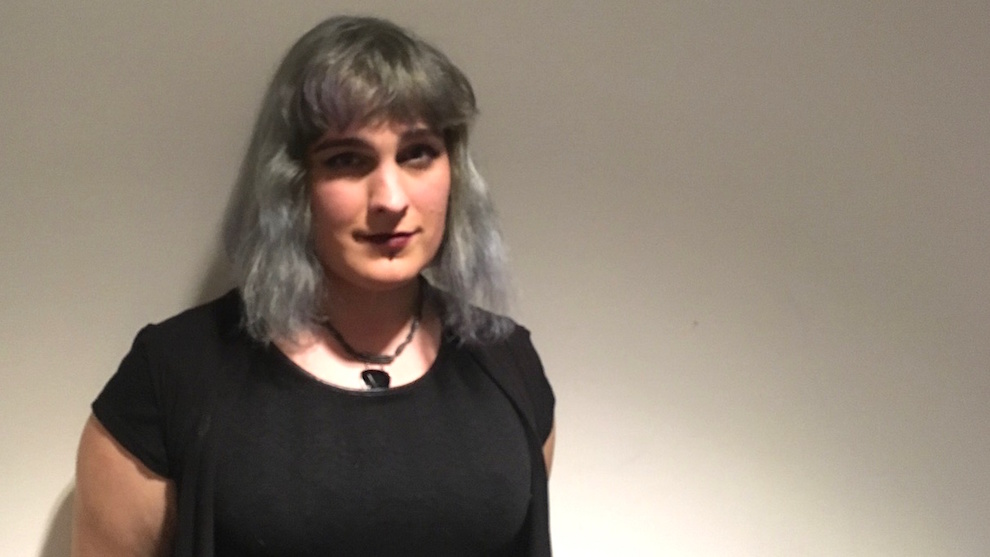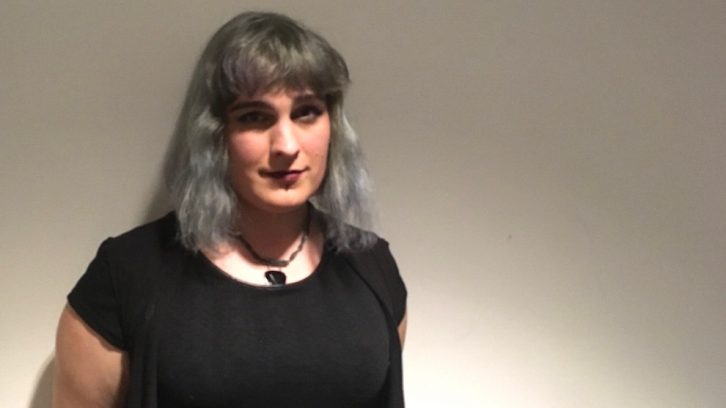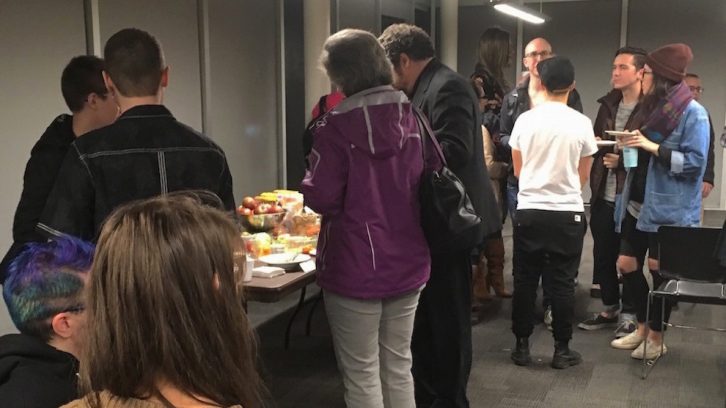LGBTQ
Transgender Day of Remembrance sends emotional message
Halifax community comes together to remember trans victims of violence this year

caption

caption
Cory Annett read a poem she wrote to the crowd at the Trans Day of Remembrance on Sunday.Cory Annett read her poem “Room” to the quiet crowd. Annett talked about the people who would fill the empty chairs in the room, if they were still here.
The Dalhousie Trans Day of Remembrance (TDoR), held in the Student Union Building on Sunday, saw about 50 people turn out to show their support. Both trans people and allies in the room were silent, a few burying their heads in their hands, as a lineup of presenters read the names of some of the victims.
In Canada, gender identity is still not recognized as a basis for hate crimes. An Ontario study by Trans Pulse Project Canada stated that 35 per cent of trans people had considered suicide in the last year.
Annett chose the poem, which was originally written for her grandfather’s funeral, because it seemed relevant at this event too. She said she wishes there wasn’t a need for the Trans Day of Remembrance, but visibility is important.
“Visibility, for some, means lack of safety (and) means opening yourself up to potential violence,” said Annett. “If not, then our lives are going to get swept under the rug; our lives are not going to be visible and the violence that occurs is not going to be visible.”
A lot of this violence is directed at people who don’t conform to gender norms.
“Although I am trans I don’t get a lot of trans misogyny directed at me because I ‘pass’ well,” said Annett, who notes that her transition has coincided with the increasing trans visibility in the past few years.
“That visibility allows us to be loud and make changes and influence people to get the basic human protections that we need.”
The event was emceed by Áine Morse, who said that over 80 trans people had been murdered globally this year and the most frequent victims are trans women of colour. TDoR was also made to be a safe space for trans people, with volunteer “active listeners” available throughout the evening for those who needed to talk.
Rose Boudreau, who also goes by the name Aaron, said this was the first event they’ve attended in the trans community since coming out in August. Boudreau said the community is larger than they thought, even though it may look small.

caption
Attendees of the TDoR gather around for refreshments afterwards.Like Annett, Boudreau felt supported during their transition, but said their transition affected more than just themselves.
“It’s not just a transition for you, but for your family and your friends,” Boudreau said. “Everyone you know is trying to adjust the memories of you that they have as the other gender and trying to see how that compares.”
Boudreau said that transition is not easy and not the same for everyone.
“I wanted my social transition to pave the way for people who are still nervous,” said Boudreau. “At this point you still have to be socially provocative in order to handle a transition.”
About the author

Victoria Walton
A 4th year journalism (BJH) student at the University of King's College, Halifax. Combined honours with International Development Studies. Interested...
